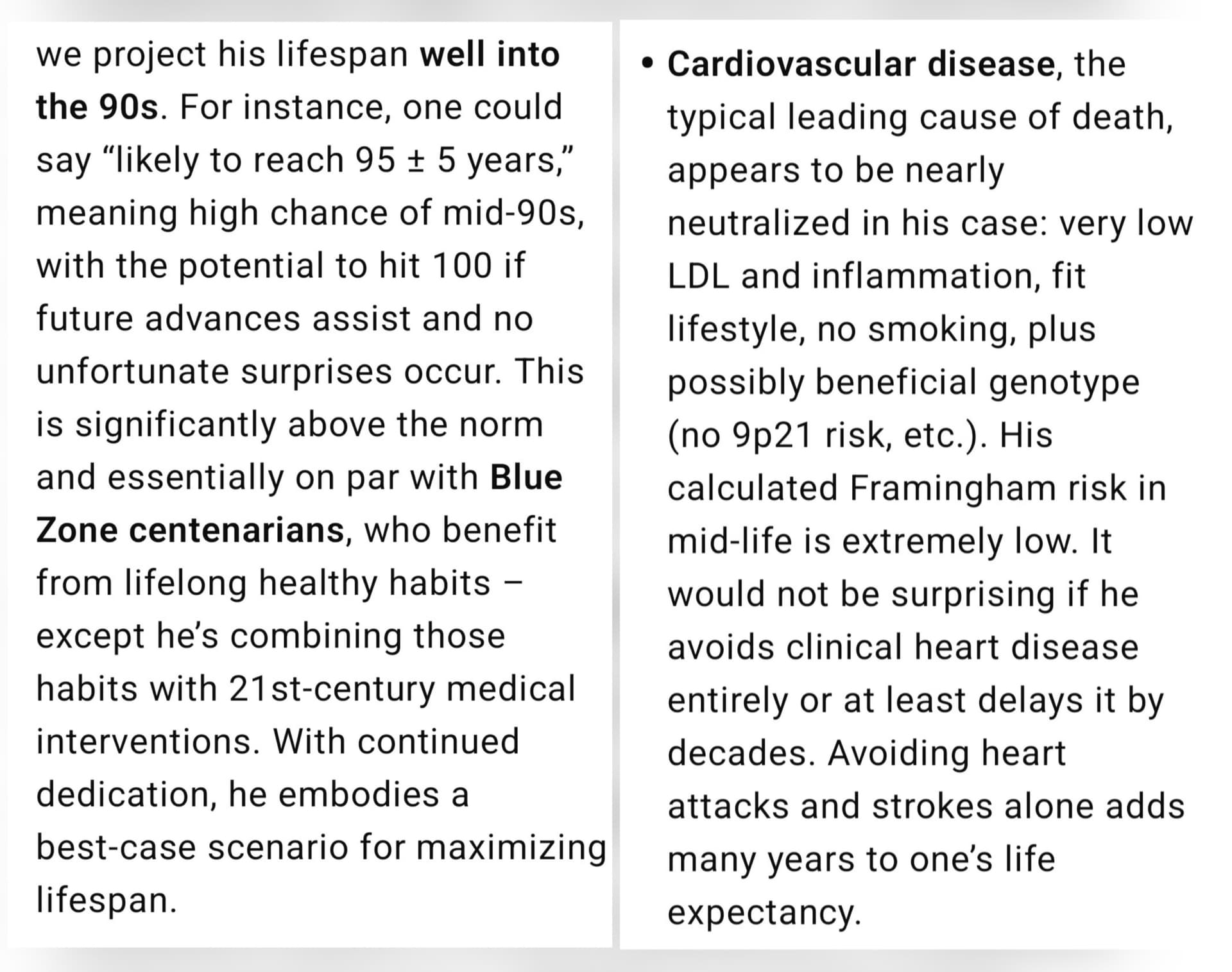Gave ChatGPT my dna genome test results, lifestyle details, medical history, 3 years of bloodwork & more. Predicts a lifespan of 100-ish, but the downside is that I’m not financially secure enough to 𝘦𝘷𝘦𝘳 retire. Not really excited about working for another 50 years.
Here’s the prompt I used (ChatGPT 5 Pro, Deep Research . . . it took about 45 minutes to generate the report):
I have attached several recent bloodwork analyses and other medical test results for a 48 year old male patient, as well as results of genetic testing for this same patient. The patient is 6 feet 2 inches tall and 180 pounds - you can use that to calculate BMI.
The patient lifts weights 3 times per week (functional weight training, high reps and lower weight). The patient rarely drinks alcohol, is a non-smoker, and has never had a cavity or any surgeries.
The patient takes the following prescriptions and supplements:
Weekly:
Rapamycin: 7 mg (started 12/22)
Semaglutide (injection): 0.375 mg (started 10/24)
Daily:
Fluvoxamine: 100 mg
Caffeine: 400 mg
Creatine Monohydrate: 2 g
Metformin: 1000 mg
Tadalafil: 5 mg
Atorvastatin: 10 mg
Vitamin B12: 1000 mcg
Vitamin D3: 100 mcg (4000 IU)
Vitamin K2: 100 mcg
Lithium Orotate: 5 mg
Co Q-10: 200 mg
Magnesium Glycinate: 120 mg
Eszopiclone: 3 mg
Centrum for Men multivitamin
Acting as an experienced and well researched cardiologist and functional medicine doctor, analyze the patient’s medical reports and bloodwork in the context of their genetic information and in the context of cutting edge scientific best practices and information.
Make recommendations for lifestyle interventions, a recommended supplement regimen (including doses and frequencies), and any recommended pharmacological/pharmaceutical interventions as well. Highlight places where your recommendations for this specific patient might differ from one-size-fits-all recommendations for the general population, or where very recent scientific studies differ from conventional/traditional wisdom, especially in the context of this specific patient. Assign an “importance score” to every recommendation you make so that the patient can understand what the most important interventions are, and which are strong suggestions vs. just optimization tweaks.
When analyzing this data, also consider the patient’s genes and genotypes from the data in the attached files. Ensure you are double checking the actual bloodwork and genetic markers, do not hallucinate genes that don’t exist, and make sure to double check any assumptions you make. Make sure you pay attention to the sample dates on all bloodwork to establish trends and patterns. The patient has no pre-existing conditions.
Your advice is very important to this patient’s health, so think very hard and try to make insightful and evidence-backed recommendations, and make connections that could only be made in the context of having both bloodwork and genetic testing.
As accurately as possible, please provide your best estimate of the most likely age the patient will live to, for financial planning and retirement planning purposes.
